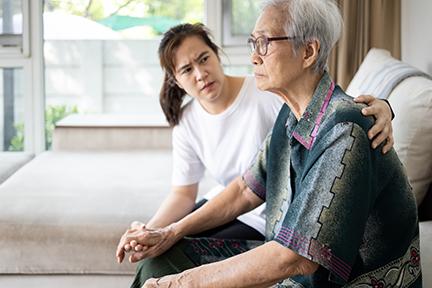
Self-care is an essential, often overlooked, aspect of caregiving. Caregivers, whether they are professionals or family members, play a crucial role in the health and well-being of their charges. However, the demands of caregiving can be physically, emotionally, and mentally taxing, leading to caregiver burnout if proper self-care is not practiced. This article delves into why self-care is vital for caregivers and offers practical advice for integrating self-care into their daily routines.
Understanding the Importance of Self-Care for Caregivers
1. Prevention of Burnout: Caregiving can be a relentless task, and without adequate breaks and self-care, caregivers are at a high risk of burnout. This includes symptoms like fatigue, stress, and feelings of helplessness. Practicing self-care can help mitigate these symptoms, ensuring that caregivers can continue to provide high-quality care without compromising their health.
2. Emotional and Mental Health: Caregivers often experience a range of emotions, including stress, guilt, and sadness. Self-care activities, such as meditation, exercise, or hobbies, can provide a much-needed emotional release and mental break from the demands of caregiving.
3. Physical Health: The physical demands of caregiving, such as lifting or extended periods of standing, can take a toll on the body. Regular exercise, adequate sleep, and proper nutrition are crucial components of self-care that help maintain the caregiver's physical health.
4. Better Quality of Care: When caregivers look after their own health and well-being, they are in a better position to provide high-quality care. They are more patient, attentive, and emotionally available, which significantly benefits those they are caring for.
Practical Tips for Integrating Self-Care into Caregiving
1. Establish a Routine: Incorporate self-care into your daily routine. This could be as simple as setting aside time for a cup of tea, reading, or a short walk.
2. Seek Support: Don’t be afraid to ask for help. Utilize resources like family, friends, or professional respite services to take occasional breaks.
3. Engage in Physical Activities: Exercise is a powerful stress reliever. Even a daily 30-minute walk can make a significant difference in your physical and mental health.
4. Practice Mindfulness and Relaxation Techniques: Techniques such as meditation, deep breathing, or yoga can help reduce stress and improve overall well-being.
5. Prioritize Sleep and Nutrition: Ensure you get enough sleep and maintain a balanced diet. These are foundational to your health and ability to provide care.
6. Connect with Others: Join caregiver support groups, either in-person or online. Sharing experiences and tips with others who understand can be incredibly comforting and informative.
7. Set Boundaries: It’s important to know your limits and communicate them clearly. Setting boundaries helps prevent overextending yourself.
Conclusion
Caregiving is a noble and challenging role, and it is vital that caregivers prioritize their own health and well-being through self-care. By taking steps to care for themselves, caregivers can avoid burnout, enhance their quality of life, and provide the best possible care to those who depend on them. Remember, taking care of yourself is not a luxury; it’s an essential part of being a great caregiver.
